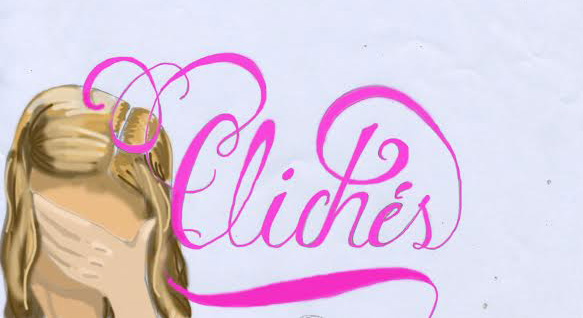
It often seems like I can’t browse the aisles of any bookstore or “Young Adult” reading section without cringing.
The magenta spines and cerulean blue covers seem to scream, “I have no substance!” These books are titled using a rather limited word bank, often using solely an adjective, such as “Twisted” or “Glossy.”
These stories tell tales of teenage girls with cars and studly boyfriends; their plot lines are simple yet bursting at the seams with useless junk. There are simply not enough good books for teenage girls on the market.
Authors seem to think we lack the intelligence to comprehend matters more serious than Candy hooking up with Jake behind Jennifer’s back even though they were exclusive. Where’s the reading material that is supposed to inspire teenage girls beyond the endless plains of high school drama? Does it even exist?
I love a good book. As a child and middle-schooler, I read avidly, often completing a book every other night. The selection was vast, the options uncharted; almost every genre held the promise of an exciting read.
Getting into bed was a privilege each evening because it meant immersion into a fantastic new world, only for a little while before falling asleep.
I can’t pinpoint the exact age when I began to wander the bookstores restlessly, huffing and puffing, wiping sweat from my furrowed brow as I desperately attempted to locate a book with a summary beginning with something other than “It was the summer before senior year.”
“What happened?” I would wonder, wallowing in my misery. Perhaps an open mind is what’s necessary, I would tell myself. I’d buy the books that looked the most promising; those that had smaller than 16- point font and appeared as if they merited an opportunity. Time and time again, I’d be disappointed.
Now, I’m not saying that all books for adolescents are equally heinous. You could probably fight a small army worth of people who are die-hard “Fault In Our Stars” fans on the subject.
Perhaps we teens fall in the most awkward of places as far as reading maturity goes, and publishers don’t know what to do. I don’t know about the rest of the demographic, but as a seventeen-year old female, I am not yet truly interested in reading a first-person account of a messy divorce followed by a scandalous and lust-filled affair.
I want to relate to the book I’m reading and relate to its characters. I’m also not interested in anything that’s going to patronize my reading abilities or intelligence. Why can’t an author write a book about high school, maybe even about a summer romance, enriching vocabulary and substance embedded in it? It’s as if the two can’t co-exist.
We also need books that tell of female protagonists with ambitions that include things other than boys; girls who face challenges involving family and careers and their own identities. I have nothing against good old-fashioned romance. But what if the romance doesn’t work out perfectly by the end of the book, as it often doesn’t in real life?
What if John and Emily had actual, tangible issues in their relationship that extended beyond the rather limited realms of petty high school drama? I want to read a book about relationships that are strangely unique in their nature, not a story about two cookie-cutter characters with cheesy scripted dialogue and little to no character development.
Having a limited variety in good books hurts teenage girls. Yes, it may take away the easy enjoyment of reading, but the issue at hand is more serious. We don’t see even a semblance of a reflection of ourselves in these books.
I haven’t related well to a main character in a novel, specifically in the genre “Young Adult,” in I don’t know how long. It’s important for young girls to read and observe fictitious characters so they can relate to qualities they see in themselves. Lately, I’ve simply been reading about girls who I observe as odd specimens of superficiality; manifestations of all the typical stereotypes and cliches.
Books are just one more way for us to develop our own character by learning about someone else, and within the current book market such opportunities are rather limited.
I’m waiting for the day a book, or better yet a series, is published that gives teenagers, especially girls, characters with true depth and allows us to read about people who, like us, have dimensions, and are more than just paper-thin personalities (pun-intended).


